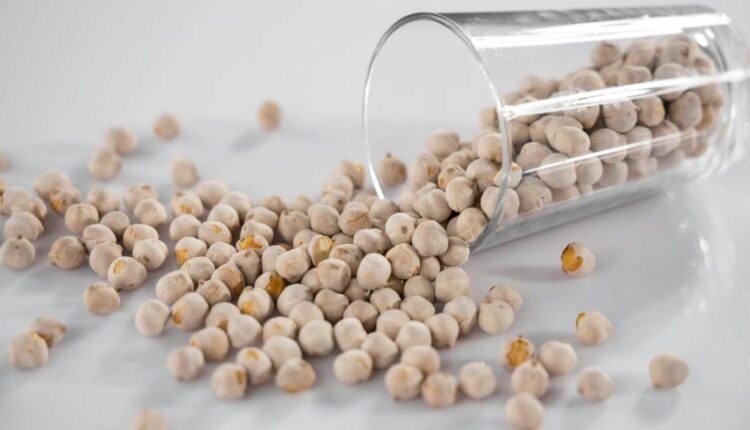A Wave of Climate-Conscious Startups Are Brewing ‘Beanless Coffee’
Climate change poses a significant threat to our agricultural systems, with hotter temperatures, shifting rainfall patterns, and extreme weather events placing stress on farms and imperiling the ability to grow certain crops in certain places. Some of the first casualties will likely be sensitive, specialty crops like tropical berries that make one of the world’s most beloved beverages: coffee. However, as long as coffee has been around, alternatives have cropped up around it. Today, a new wave of startups is entering the coffee-imitation game, motivated by the threat climate change poses to the world’s coffee supply.
There is a strong tradition, in nearly all regions around the world, of making brewed beverages that have a resemblance to coffee. This tradition has often been driven by cost, offering cheaper options, like toasted barley and rye, for the masses who couldn’t afford a specialty item like coffee. As climate change threatens coffee production, it is likely to drive up the price of the real deal, which could fuel demand for affordable alternatives.
For those alternatives to begin to gain a foothold today, they have to be good. L.V. Anderson, a senior editor at Grist, was highly skeptical of what these startups were offering. She was highly aware that they were not coffee. The rich, seductive smell was missing, and the taste was “just slightly off in a way that is hard to put your finger on.”
Although coffee is not one of the worst offenders when it comes to the climate impacts of agriculture (like beef and dairy, two other products that have grown their own markets of alternatives), its production does come at an ecological cost. In many cases, these coffee-less coffee companies are appealing to sustainability-conscious consumers by offering what they claim to be a more eco-friendly option. At least a few startups are also focusing on agricultural waste products to make their brews, helping to keep food waste out of landfills.
These companies may be hoping that early adopters will make the switch based on this sustainability argument, but ultimately, they are also making a bet that these products will be more climate-proof than real coffee — and that coffee lovers, like Anderson herself, may end up being willing to adjust to the dupes.
In conclusion, climate change poses a significant threat to our agricultural systems, with hotter temperatures, shifting rainfall patterns, and extreme weather events placing stress on farms and threatening the ability to grow certain crops. As coffee growers venture into new regions, they will tear down more trees, threatening biodiversity and transforming forests from carbon sinks into carbon sources.
In the past, coffee has been out of reach for most people, leading to the development of cheaper, albeit caffeine-free alternatives. Caro and other instant beverage mixes, like Postum in the U.S. and caffè d’orzo in Italy, were popular during World War II and in the following years when coffee was rationed or otherwise hard to come by. The practice of brewing non-caffeinated, ersatz coffee out of other plants is even older than that. In the Middle East, people have used date seeds to brew a hot, dark drink for hundreds or perhaps thousands of years. In Europe and Western Asia, drinks have been made out of chicory, chickpeas, dandelion root, figs, grains, lupin beans, and soybeans. These ingredients have historically been more accessible than coffee and sometimes confer purported health benefits.
Today’s beanless-coffee startups are attempting to put a modern spin on these time-honored, low-tech coffee substitutes. Northern Wonder, based in the Netherlands, makes its product primarily out of lupin beans, chickpeas, and chicory. Atomo, headquartered in Seattle, infuses date seeds with a proprietary marinade that produces “the same 28 compounds” as coffee, the company boasts. Singapore-based Prefer makes its brew out of a byproduct of soymilk, surplus bread, and spent barley from beer breweries, which are then fermented with microbes. Minus also uses fermentation to bring coffee-like flavors out of “upcycled pits, roots, and seeds.” All these brands add caffeine to at least some of their blends, aiming to offer consumers the same energizing effects they get from the real deal.
In trying to explain what makes today’s beanless coffees different from the oldfangled kind, David Klingen, Northern Wonder’s CEO, compared the relationship to the one between modern meat substitutes and more traditional soybean products like tofu and tempeh. Many plant-based meats contain soybeans, but they’re highly processed and combined with other ingredients to create a convincing meat-like texture and flavor. So it is with beanless coffee, relative to Caro-style grain beverages.
By contrast, traditional coffee alternatives like chicory and barley brews have nothing to offer a caffeine addict; Atomo, Minus, Northern Wonder, and Prefer are promising a reliable daily fix. Andy Kleitsch, the CEO of Atomo, said that “Coffee is a ritual and it’s a result,” and that’s what they’re replicating.
Read More @ Grist
Source: Coffee Talk



